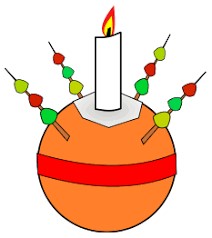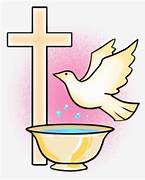Hope through Action
A talk by Alva Feldmeier about the work of 350 Aotearoa and its work to limit climate change

Today’s theme is Hope through Action.
This week, I had the incredible opportunity to be part of the 350 Pacific Power Up Gathering that brought together over 70 young climate activists from the islands of Tuvalu, Papua New Guinea, Samoa, Tonga, Marshall Islands, Niue, New Caledonia, Fiji, Cook Islands, the Torres Strait and diaspora communities in the US, Australia and New Zealand.
The Pacific Climate Warriors were formed 10 years ago at a global 350 Gathering in Istanbul Turkey. At the time - and to some extent until today - the vast majority of the media, the climate movement and the general public talked about the Pacific islands drowning and soon disappearing but rarely talked with people from the Pacific islands. While sea level rise and the frequency and severity of cyclones are indeed posing major risks to the small island nations, the people on the islands are far from passive to the threats to their homes.
Inangaro Vakaafi, one of the elders, shared at an evening kawa bowl talanoa session this week that the PCW were formed as a response to this narrative; they did not feel like they were drowning. Instead, they were filled with the love for their island homes, they had seen first-hand the resiliency of their people who rebuilt, innovated and adapted after each devastating cyclone that ravaged their village. They carried in them their ancestors’ warrior spirit.
So in 2013, the Pacific Climate Warrior Network was born and declared their iconic motto “We are not drowning, we are fighting” There is so much in this sentence; A declaration that they will not be defeated but take action.
“We are not drowning, we are fighting” Exposes the power dynamics that those who are least responsible for climate change will fight those who have caused it.
“We are not drowning, we are fighting” is a powerful message that there is hope and they will not give in to fear or despair.
Reclaiming the narrative is an important part of what the 350 Pacific Climate Warriors do. By sharing their own stories they are able to move people in ways that the scientists who prepare numbers, graphs and climate impact predictions will never be able to do. Their work is particularly important at large global gatherings where politicians and business leaders from across the world come together to make decisions that could impact whether Tuvalu will still be inhabitable in a few decades. When negotiators argue about whether a text should read “phase down” or “phase out” the PCW through dance, song, poems and powerful speeches show what is at stake if we don’t take action.
---
I joined 350 about 6 years ago in the summer before I started my first year at University. A poster on a notice board inviting to a workshop on Non-Violent Direct Action piqued my interest. I met a bunch of cool people who shared my passion to stop climate change and make a difference. Monday night 350 meetings quickly became my weekly highlight. Together we met at one of the halls at Knox Church Dunedin who kindly offered this space to us. These meetings were a safe space for me. Over a cup of tea and some snacks, we would check in how our weeks had been, share grief, laughter, and anger about the state of the world, we’d discuss updates on our campaigns and plan actions. I was the youngest member at the time and the oldest person was a grandma in her late 60s - for someone who didn’t grow up in the church but later married into it, being in this intergenerational group of people who became mentors and friends from different stages in life was really special.
At the time that I joined, OMV, one of the largest fossil fuel companies in the world, had just secured a consent to drill for oil off the coast of Dunedin in the Great South Basins. Deep-sea oil drilling brings with it a myriad of environmental concerns from impacts on marine life, and potential oil spills, to locking us into further reliance on fossil fuels when the existing reserves already bring us over the 1.5 degrees limit. Alongside seasoned activists in the 350 group, I learned how to talk about climate change with my friends and family, I wrote and delivered my first protest speeches, learned ways to get more people involved in our group, made my first submissions to the Environmental Protection Authority and Government and helped organise a flotilla to greet the Rainbow Warrior who was coming down to visit. After a 1.5-year battle we won - OMV completed drilling of the exploration well because it had failed to find oil in the Great South Basin and left.
The following years we campaigned on fossil free banks calling on all New Zealand banks to stop investing and lending money to the industry most responsible for climate change. Our catchphrase was “If it’s wrong to wreck the planet, it’s wrong to profit of it”. We did all sorts of fun actions we set up stalls at the University O-Week to hand-out fliers that compared the different banks climate commitments to help new students decide which bank to bank with, we held a phone calling event where people called their bank hotline and told them to divest, when ANZ was found to sponsor the Petroleum Club we set up a stall outside their branch, dressed up employees and pretended to handout the gains we’d made of bankrolling the climate crisis by handing out “coal-cola” and chocolate coins, when we heard KiwiBank was getting close to release a fossil free policy - we set up a waiting room outside of their branch for an entire week during lunchtime to apply some gentle pressure. It took them a year to finally announce the policy but then it all happened very quickly. To thank them for their climate leadership we brought them a trophy as they won the race to become New Zealand’s first Fossil Free Banks. Again our perseverance was rewarded. 350 groups across the country helped mobilize thousands of people to call, email or switch their bank. Our actions outside of branches become so annoying that we created a reputational risk. If it hadn’t been for the public pressure, KiwiBank may have never bothered announcing a policy to never support the fossil fuel industry and protect our planet.
– - -
350 is not just in the Pacific and Aotearoa, we‘re part of a global network active in 180 countries. You may have already gathered this based on the two accounts I’ve shared, but something that I love about 350 is that the ways of organising and campaigning looks different across the world - it is always rooted in the local context and shaped by the people that make up the movement. There is a lot that we have in common - all our work adds up to stop the Fossil Fuel Industry and build 100% RE led by communities. We’re also united through a strong vision for a future that is just, prosperous and equitable. We believe that we can usher in this better world through our actions whether these be are a personal, local, national, or global scale.
A vision for a better world is also something I noticed in today’s reading by Mathew. I read it as a vision, a vision of a future that will provide for all people and creatures on this earth. A vision that centers the reader as the change agent to bring about this vision by being active. A vision that gives hope.
I’d like to return to the 350 Pacific gathering where I began my talk. On the 2nd day, we were all given pieces of paper and asked to write down a couple of sentences starting with my hope for my islands. The facilitators collected these and turned it into a beautiful long vision statement, one that grounded us and helped us decide what we want to protect for our children and grandchildren. The collaborative vision started like this “ My hope for my islands is to heal, to re-generate, to love, to be safe and to have peace. That we can continue to create new generations of dreamers, of weavers, of builders and leaders that remember where we’ve come from.”
This vision together with a set of demands was handed to the Pacific Island Forum General Secretary Hon Henry Puna who visited us on the last day of the gathering. He came to listen and answer questions - though like most politicians there was more dodging of questions than real answers. This left many of us frustrated. We were excited and had high hopes for this meeting to be an opportunity to ensure that the upcoming PIF would be used to put diplomatic pressure on Australia and NZ to End fossil fuels and increase their climate finance commitments. We hoped for Puna to call on Pacific Island governments to support a community-led transition to renewables. While he took the vision and demands with him, once the meeting was over powerlessness started to creep in. But my colleagues reminded us that at 350 we don’t just rely on conversations with decision makers to make a difference, we organise, we build people power and public pressure to ensure that our leaders can’t ignore us. Next weekend the Global Power Up (a huge mobilization that has more than 200 events registered to date) will be kicked off by the events happening in our region. I know that we can’t wait for our vision for a better world and safe climate future to just magically appear- but we can work together to build it ourselves- we can inspire others, get our communities involved, we can use the resources that are given to us and we can be both warriors and world builders.
At 350 we welcome everyone that shares our vision and wants to be part of shaping our future to join and support our movement.
But you don’t need to be part of 350 to take action. There are so many ways that you can be active. Item that is special to them.
I know that a lot of you are changemakers already, people filled with hope for a better future. People with the conviction to serve others and the world that nourishes us - people who believe in God and act through prayer and service for he has been our dwelling place and formed the earth and world.
I’d like to leave you with the wero- challenge to seek out ways that you act on climate change with your community. Seek out ways that you can bring about If youreBring people
As people committed to seeing justice and peace flow through our communities let us continue to seek out ways in which we can act together and foster our collective hope for the future.




